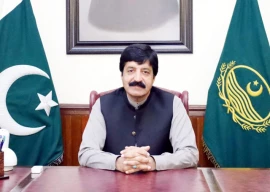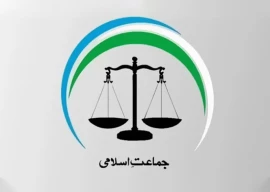
The Arab Spring is a movement that has brought the citizenry of the several countries affected by this unfolding drama to the centre stage of politics. If all goes well, those in power will no longer be able to ignore the wishes and aspirations of the people. People will have influence on the making of economic and social policy and policies affecting relations with the outside world. It will not be possible for the leadership in these countries to disregard what the ‘street’ thinks and believes in. Over time ‘the street’ will be replaced by the representatives of the people who will be able to hold the executive branch of the government responsible for the actions it takes. What keeps western leaders awake at night is the fear that they will have to make more than a phone call to persuade the various heads of state to walk their way.
They should also lose some sleep over the fact that by slipping over into the neighbouring regions, the peoples’ movement may further erode the global presence of the West. The Arab Spring will affect not only the entire Middle East and most non-Arab Muslim countries in the area. It is also likely to profoundly impact South Asia. That is likely to happen not only because a third of the South Asian population — half-a-billion out of the total of 1.5 billion people — are Muslims. There will be consequences for different countries in the region for different reasons. The peoples’ revolution would have come to Pakistan if the country had not opted in early 2008 for democratic governance. But it will still come through a different route, one which will take it out of the American orbit in which the country moved for more than half a century into one that has at its center some of the regional powers — Turkey, Egypt, perhaps also Pakistan itself.
The Anna Hazare movement in India has already exposed the shortcomings in the traditional democratic structure in which the elected parliament does not always seem to represent what the electorate really wants. That is why a large number of people, mostly from the expanding middle class, felt that their economic gains in recent years were not matched by any kind of political profit. Troubled by the fact that while their economic advance was the product of hard work and risk-taking enterprise, large fortunes had been made and were being made by misusing the power of the government. In Hazare they found a ‘saint-politician’ they were happy to support. The Indian system may also need some change as it is not working for the people of the less well performing regions of the vast country –they constitute the majority of the Indian population. The income and performance gaps between the states on the west coast compared to those in the country’s east are increasing. Millions of people in the poorer states feel and resent that the tide of ‘rising India’ is passing them by.
Bangladesh, the third largest country in the South Asian mainland, is also struggling to find its political feet. Like other South Asian countries, it has also not been able to institutionalise the process of political transition. Political power if not usurped by military leaders as was in its case and was also the case of Pakistan, tends to flow through dynastic channels. In Pakistan three major political parties are controlled by families. Pakistan Peoples Party is engaged in the process of preparing the third generation after Zulfikar Ali Bhutto to take over its leadership. If the current plans succeed, India’s Congress Party will be handing over the reins of management to the fourth generation. In Bangladesh the two mainstream parties are led by the leaders who owe their positions to the members of their families who were once the country’s presidents. The current prime minister has removed one provision in the constitution through an amendment that had previously ensured some order in the transfer of power. The country’s president will no longer be able to let a caretaker administration take the responsibility for holding elections at the appointed time and in way that ensured political fairness.
One of the main lessons of the Arab Spring seems to have been lost on the leadership groups in South Asia, in particular on the families that have governed for so long and without being seriously challenged by political processes. One reason why so many people came out on the streets or assembled in public squares in so many different countries was the frustration with the fact that no political means were available for bringing about regime change. It is no coincidence that the three regimes that fell in less than one year had been in place for decades. The presidents of Tunisia, Egypt and Libya had governed for a total of 120 years. Populations frustrated with their performance and seeing no improvements in their own situation chose to rebel rather than continuing to remain passive and tolerant. There were many reasons why the street and the public square succeeded. One of the more important ones was that the established order did not have the support of the world outside the borders of the countries where people desired change. The “grand bargain” between the political elite and the West that had scaffolded the rule by the former finally broke down.
Published in The Express Tribune, October 3rd, 2011.
COMMENTS (17)
Comments are moderated and generally will be posted if they are on-topic and not abusive.
For more information, please see our Comments FAQ























Max And Malik,Your analysis is more in the line with what is happening in middle-East,Malik in brief ,and in nut shell you have said it what all need to be said.As far as South Asia is concerned only Pakistan will be influenced on margin that too very little,I will not rehash as Malik has said it what need to be said.Mark my word,nothing much will change on account of spring revolution,only yesterday there was burn down of church and clash between Muslims and coptic christians,military with another strong men(MEN) are now ruling instead of one dictator Mumbarak,if you have eyes you can see.I'm not much impressed by overhaul progress of India,it looks good to casual on lookers,yes they have booming economy,solid middle class,but did you notice where India is among the statstic of nations on list of U.N. ?it is brackted with nations of sub-sahara nations.India ranks138 in PCI,128 in human devlopment figure,just above Pakistan and chad and Ivory coast.They can fool most,but not one who do their home work,and I count you two among one who do their home work,that General Secretary name sake is not among who ever does his home work,but party hack and demogues and idealogues seldom do,they are paid to be parrots,which they vomit every now and then.I have news for you,even the best of revolution if ever, achieve anything worthwhile,heard about,French,Russian and Chinese?Only blood shed and slogans.'Garebhi Athao!'Have you heard that?,last I heard,poverty has only increased in India.Case closed,I have said enough for a day and like a good boy,must sit in a corner be quit.and quiet.Have nice day
@Author Please don't say things just for the sake of saying. The situation in Pakistan is very different from that of Arabian peninsula. One can't have photocopies of revolutions and movements.
There is no doubt that manifeatation of unrest in different Arab countries has taken different shape, but we must find out if it has a common undercurrent - the desire to partcipate in the governance processs.
Arab spring itself is much misunderstood and much glorified. In some places, this revolution has just been a Sunni-Shia clash and in some places, the protest is nothing but a manifestation of people's desire for more islamization of society.
For example, in Egypt, people are not fighting for democracy or for equal rights for women and minorities. People are on the streets fighting for the right to have beards and veils and fighting for the right to keep girls away from their schools. People in Egypt are demanding their government to be more anti-Israel and more anti-US in their policies. In fact, people of Egypt are asking their government to follow the Iran model, more islamization and less westernization in their society.
In Bahrain, it is simply a Shia-Sunni fight. In Tunisia, it is the anger against the dictatorship government. What all these people - in Tunisia, Egypt, Libya, Syria - will ultimately achieve is the replacement of one dictator with another benign-faced dicatator. This is what the great Arab Spring is all about.
We are confusing the issue. The first question is if Arab Springs, as a movement for socio-economic chnage, is going to be a success story or going to melt down without leaving a significant impact on the Arab society. Then if it succeeds, what direction it is going to take, and finally its impact on South East Asia and countries of South Asia that are exporting labour to the Arab world and in return importing heavily a part of the Arab attitude to religion.
Let us be patient and see what valuable contribution Dr. Burki can make in responding to these questions?
@MD: You are confusing the Arab spring with oil rich affluent Gulf sheikhdoms. Egypt, Tunisia, Libya, Syria, Jordan and Algiers are neither rich nor the countries known for exporting Islamic idealogies. Therefore did out deeper and you will find the real essence of their ideology, which may be relevant to South Asia as well.
The bloggers have grossly misunderstood the core point of the article by Mr. Burki. The context of the Arab Spring with the South Asia is not with reference to the Arab ancestors or Islamic heritage/ideology. Hence he has not linked it to and ethnic or religious movement. In essence the real motivation of the peoples particularly the youth is based on the aspirations to achieve an emanicipated fair and responsive socio-economic and polictal system which the middle eastern regimes terribly failed to deliver and so called democracies or quasi-democracies in our region also grossly faultered. Gandhi Ji started his struggled in Africa and brought it in India in the begining of last century. Hence such movements are not divisible in terms of ancestoral heitage, ethnic links or religious bondages. The peoples quest for better life is universal and inspiration or motivation for struggle to realize this goal may come to South Asia from any side and Arabs are no exception. Any movement encourged by Arab Spring will not for Arabisation or Islamisation of South Asia, it will be for emanicipation of masses.
Max : You did not read my post properly. My post was in reply to the message of Devil'sAdvice wherein it is inferred from this article that "Half a billion muslims think that arabs are their ancestors". By the way what is that in my message you did not understand.
@ MD and Vasan: Where in the world did you get this idea that Pakistani Muslims are descendents of the Arabs? Please read the history. Yes! There are a few and they are all over the sub-continent, going all the way to Bengal and Myanmar. They claim themselves to be descendents of the Arabs and generally go by the last name Syed, or Qureshi. After reading your comments I must say that an average Pakistani is much more aware of their ancestral heritage, history, and culture. Glad I did not study medicine or live in Maryland. Please also write in readable English that one can read and understand, and do not make off the wall claims of knowledge.
Typical consultant/expert bloviation - take a localized issue and generalize it to the whole world! When the so-called colour revolutions were happening, the same experts said it is US inspired, and hence, couldnt happen elsewhere. But now they turn around and say the Arab world will affect South Asia, especially India. The Arab drama will affect those who are over-leveraged on Arabia, in general. Like Pakistan. If anything, the Arab spring will make its impact felt in other Islamic countries like Indonesia, Malaysia and Brunei before hitting Indian shores. One of the factors key experts like Burki fail to understand about India, is that the country is very large, and hence, while Anna Hazare type movements are important, there are a hundred such things going on in India all the time. And hence, on its own, it will not have an earth-shaking impact. If someone is a real expert, then he would know that the UP elections next year will be far more impactful in the Indian scheme of things.
About Arabia, and its inspiration, the less said the better- on one hand, the 'spring' countries have managed to replace kings and dictators with the military and Islamic fundamentalists, while the other lot like Jordan strut around as if everyone is falling off their chairs to listed to the pearls of wisdom from Rania and Hassan!!
Devils Advice : The concept of Arabs being the ancestors of all muslims is not accepted by all muslims of S Asia. It may be accepted by a majority of muslims of Pakistan. But majority of the South and east Indian muslims, Bangladeshi muslims and Srilankan muslims do not buy that.
In my opinion, the Arab Spring impacts Pakistan only because so much of Pakistanis' education is dictated by Arab Muslims. As the liberated Arabs are now free to grow and change the educational outlook and goals they favor will change as well.
MD
You didnt read whole article carefully ,Author trying to explain in hidden and simple terms ,That out of 1.5 B population of SE asia ,Half a Billion is Muslim,So Arab Spring will effect whole of SE Asia ,Because this Half a Billion Muslims thinks that Arab is there ANCESTOR , So when some thing change in ARAB LAND ,Change is Bound to happened to OFFSPRING.
Simple as that.
Sir, Your essay made me to think of several developments around the world and over a period of time. Your intentions and concerns well taken, I am afraid it will require more than a century for social or political transformation of South Asia. India may be able to break the egg-shell before any other South Asian country but I have my reservations given the income and social inequalities in India. As far Mamlikat Shaad Baad, I have serious doubts what to say of reservations. I will be little careful calling Arab up-rises as social or political revolutions. It will be simple change of guards and nothing more, i.e., one set of rulers will be replaced by another. Looking forward for your essays over the next few weeks.
Mr. Burki, sir, frankly speaking I couldn't understand your article or logic you presented. How on earth, the Arab Spring is going to affect the political landscape of the sub-continent? Almost 3/4th of the sub-continent constitute India and I don't understand how the Arab Spring is going to make any difference to our lives. One cannot compare India with the pathetic Arab world, which despite the immense oil wealth, miserably failed to make its citizens productive. Almost all the Arabs are just living by selling their oil wealth and their contribution to the welfare of the humanity is a big zero. In fact, they are the main source of unrest in the rest of the world, due to the export of their twisted religious mindset, along with the oil. I don't think that, even the so called spring revolution, is going change their obscurantist and regressive societies. They would still be languishing in the pool of ignorance and religious utopia. The biggest victim of Arab oil wealth and their dogmatic religious world view is Pakistan, its current horrendous situation can be attributed, mainly, to the "Arab exports"!